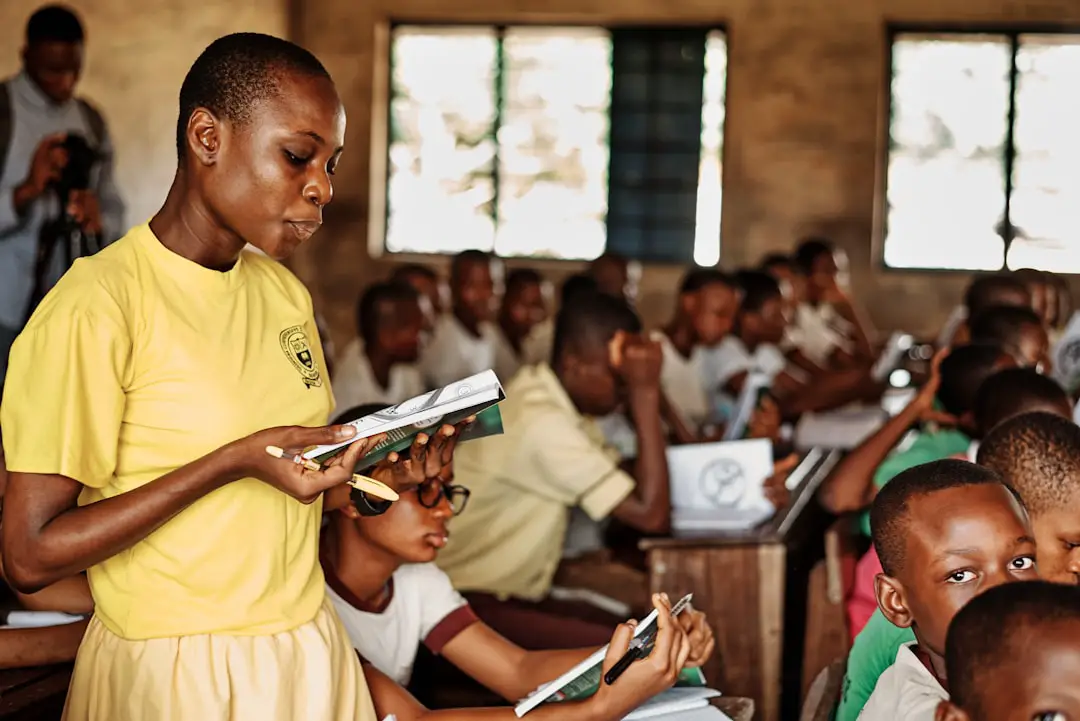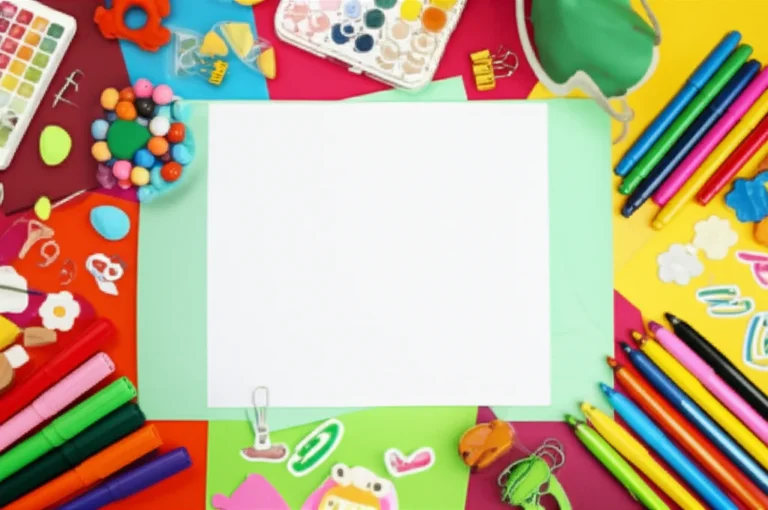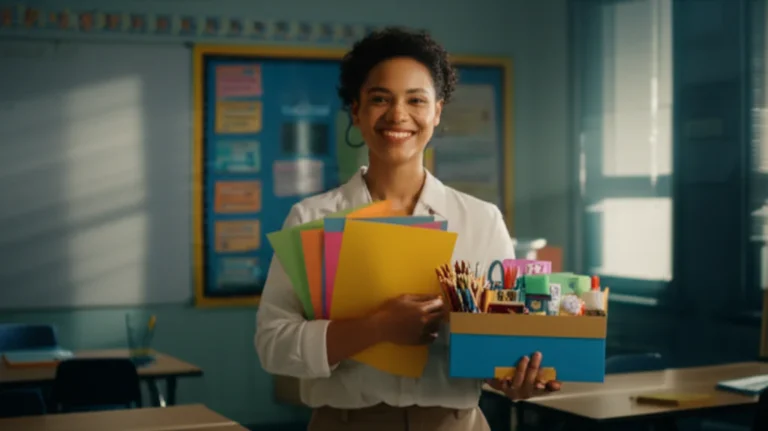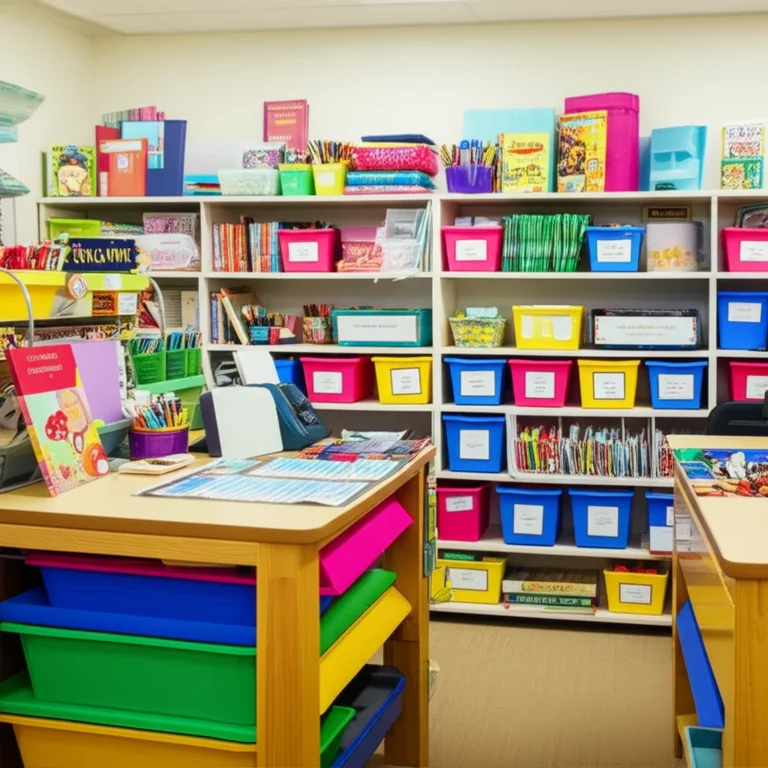Support our educational content for free when you purchase through links on our site. Learn more
How Much Do First Year Teachers Really Spend? 10 Shocking Facts (2025) 💸

Picture this: You’re a brand-new teacher, buzzing with excitement and ideas, ready to transform your classroom into a vibrant learning haven. But then reality hits—your wallet starts to feel lighter than you expected. How much exactly do first year teachers spend out of pocket on their classrooms? Spoiler alert: it’s often way more than you think! From essential supplies to tech tools, and even unexpected decor costs, the spending can quickly add up to hundreds or even thousands of dollars. But don’t panic—we’ve got the ultimate breakdown, insider tips, and savvy hacks to help you stretch every dollar without sacrificing quality or creativity.
In this article, we’ll dive deep into the real costs of setting up your first classroom, the emotional reasons behind those purchases, and how to tap into grants and discounts to ease the financial burden. Plus, you’ll hear from experienced teachers who’ve been there, done that, and lived to tell the tale. Ready to uncover the truth and take control of your classroom budget? Let’s get started!
Key Takeaways
- First year teachers often spend between $500 and $1,000+ out of pocket on classroom supplies, decor, and technology.
- 94% of teachers spend their own money on classroom essentials with little to no reimbursement.
- Prioritize must-have supplies like dry-erase markers, notebooks, and organizational tools to maximize impact.
- Use DIY hacks, bulk buying, and secondhand shopping to stretch your budget further.
- Explore grants and school district programs to offset costs and reduce financial stress.
- Track your expenses carefully with apps or spreadsheets to avoid surprises.
- Invest wisely in tech tools that truly enhance learning without breaking the bank.
Ready to shop smart and save? Check out these categories to get started:
Table of Contents
- Quick Tips and Facts About First Year Teacher Classroom Spending 💡
- The Real Cost of Setting Up Your First Classroom: A Budget Breakdown 💸
- Why First Year Teachers Spend So Much: The Psychology & Passion Behind the Purchases ❤️
- Top 10 Must-Have Classroom Supplies for New Teachers (And Where to Buy Them) 🛒
- DIY and Budget Hacks: Stretching Your Classroom Dollars Further 🔧
- How School Districts and Grants Can Help Offset Classroom Costs 🏫
- Personal Stories: First Year Teachers Share Their Spending Surprises and Lessons Learned 📚
- The Impact of Classroom Spending on Teacher Wellbeing and Retention 🔄
- Tech Tools and Educational Resources: What’s Worth the Investment? 💻
- How to Track and Manage Your Classroom Expenses Like a Pro 📊
- Keep Up with Us: Latest Trends and Tips for First Year Teacher Budgeting 🚀
- Conclusion: Making Every Dollar Count in Your First Year Classroom 🎯
- Recommended Links for First Year Teacher Resources and Discounts 🔗
- FAQ: Everything You Wanted to Know About First Year Teacher Classroom Spending ❓
- Reference Links: Trusted Sources and Further Reading 📚
Quick Tips and Facts About First Year Teacher Classroom Spending 💡
As we explore the world of first year teacher classroom spending, it’s essential to understand the basics of budgeting and how to make the most of your resources. According to a related article about Do Teachers Get a Classroom Budget? 7 Truths You Need to Know (2025), teachers often have to get creative with their spending. Here are some quick tips and facts to get you started:
- The average teacher spends around $479 per year on classroom supplies, according to the National Center for Education Statistics.
- First year teachers often spend more, with some reporting expenses of up to $1,000 or more.
- 94% of public school teachers spend their own money on classroom supplies, with no reimbursement.
- You can find a wide range of classroom supplies at Classroom Supplies or Office Supplies on our website.
Essential Supplies for First Year Teachers
When it comes to stocking your classroom, there are some essential supplies you’ll need to get started. These include:
- Dry-erase markers
- Paper towels
- Pencils
- Notebooks
- Binders
You can find these supplies and more at Amazon or Walmart.
The Real Cost of Setting Up Your First Classroom: A Budget Breakdown 💸
Setting up your first classroom can be a daunting task, especially when it comes to budgeting. Here’s a breakdown of what you might expect to spend:
| Category | Estimated Cost |
|---|---|
| Classroom Decor | $100-$300 |
| Furniture | $500-$1,000 |
| Technology | $500-$1,500 |
| Supplies | $200-$500 |
| Total | $1,300-$3,300 |
Tips for Saving Money
- Consider shopping during back-to-school sales or using coupons to save on supplies.
- Look for discounts on furniture and technology.
- Repurpose items you already have to save on decor and supplies.
You can find more tips and resources on our Instructional Technology page.
Why First Year Teachers Spend So Much: The Psychology & Passion Behind the Purchases ❤️
First year teachers often spend more than they expect to on their classrooms, but why? It’s not just about the basics of budgeting; it’s about creating a welcoming and engaging learning environment for their students. As one teacher noted, “I want my classroom to be a place where my students feel comfortable and supported, so I’m willing to spend a little extra to make that happen.”
According to an article by NEA, teachers spend an average of $500 per year on classroom supplies, with some spending much more. You can find more information on teacher spending habits on the NEA website.
The Impact of Out-of-Pocket Spending
Out-of-pocket spending can have a significant impact on teachers, both financially and emotionally. As noted in an article by PENCIL, 94% of public school teachers spend their own money on classroom supplies, with no reimbursement. This can lead to teacher burnout and financial stress.
Top 10 Must-Have Classroom Supplies for New Teachers (And Where to Buy Them) 🛒
Here are the top 10 must-have classroom supplies for new teachers:
- Dry-erase markers
- Paper towels
- Pencils
- Notebooks
- Binders
- Crayons
- Glue sticks
- Scissors
- Rulers
- Pencil cases
You can find these supplies and more at Amazon | Walmart | Etsy.
Tips for Shopping on a Budget
- Consider shopping during sales or using coupons to save on supplies.
- Look for discounts on bulk purchases.
- Compare prices across different stores to find the best deals.
You can find more tips and resources on our Classroom Supplies page.
DIY and Budget Hacks: Stretching Your Classroom Dollars Further 🔧
Here are some DIY and budget hacks to help you stretch your classroom dollars further:
- Repurpose old materials to save on supplies.
- Make your own classroom decor instead of buying it.
- 👉 Shop secondhand for furniture and supplies.
You can find more DIY and budget hacks on our Office Supplies page.
Tips for Getting Creative
- Consider crowdsourcing ideas from other teachers or students.
- Look for inspiration online or in educational magazines.
- Experiment with different materials and techniques to find what works best for you.
You can find more tips and resources on our Instructional Technology page.
How School Districts and Grants Can Help Offset Classroom Costs 🏫
School districts and grants can play a significant role in helping to offset classroom costs. Here are some ways they can help:
- Reimbursement programs for out-of-pocket expenses.
- Grants for specific projects or initiatives.
- District-funded supplies and materials.
You can find more information on school district and grant programs on the National Education Association website.
Tips for Applying for Grants
- Research available grants and programs.
- Review eligibility criteria and application requirements.
- Plan ahead to ensure timely submission of applications.
You can find more tips and resources on our Classroom Supplies page.
Personal Stories: First Year Teachers Share Their Spending Surprises and Lessons Learned 📚
Here are some personal stories from first year teachers about their spending surprises and lessons learned:
- “I spent way more than I expected on supplies, but it was worth it to see my students’ faces light up when they walked into the classroom.”
- “I learned to budget and plan ahead to avoid last-minute expenses.”
- “I wish I had known about discounts and sales before I started shopping for supplies.”
You can find more personal stories and tips on our Office Supplies page.
Tips for New Teachers
- Connect with other teachers to share ideas and resources.
- Prioritize your spending based on your students’ needs.
- Stay organized to keep track of your expenses and budget.
You can find more tips and resources on our Instructional Technology page.
The Impact of Classroom Spending on Teacher Wellbeing and Retention 🔄
Classroom spending can have a significant impact on teacher wellbeing and retention. Here are some ways:
- Financial stress can lead to burnout and decreased job satisfaction.
- Lack of resources can make it difficult to teach effectively.
- Support from administrators can help alleviate financial stress and improve teacher wellbeing.
You can find more information on teacher wellbeing and retention on the American Federation of Teachers website.
Tips for Administrators
- Provide resources and support for teachers.
- Encourage open communication about financial stress and wellbeing.
- Foster a positive and supportive school culture.
You can find more tips and resources on our Classroom Supplies page.
Tech Tools and Educational Resources: What’s Worth the Investment? 💻
Here are some tech tools and educational resources that may be worth the investment:
- Learning management systems like Canvas or Blackboard.
- Educational software like Mathway or Reading A-Z.
- Online resources like Khan Academy or National Geographic Education.
You can find more information on tech tools and educational resources on the EdSurge website.
Tips for Choosing Tech Tools
- Research available options and read reviews.
- Consider your students’ needs and learning styles.
- Pilot new tools before implementing them in the classroom.
You can find more tips and resources on our Instructional Technology page.
How to Track and Manage Your Classroom Expenses Like a Pro 📊
Here are some tips for tracking and managing your classroom expenses:
- Use a budgeting app like Mint or Personal Capital.
- Keep receipts and records of your expenses.
- Categorize your expenses to stay organized.
You can find more tips and resources on our Office Supplies page.
Tips for Staying Organized
- Set reminders for upcoming expenses or deadlines.
- Use a planner or calendar to stay on track.
- Review your budget regularly to make adjustments as needed.
You can find more tips and resources on our Classroom Supplies page.
Keep Up with Us: Latest Trends and Tips for First Year Teacher Budgeting 🚀
Stay up-to-date with the latest trends and tips for first year teacher budgeting by following our blog and social media channels. You can find more information and resources on our website, including:
- Classroom Supplies
- Office Supplies
- Instructional Technology
You can also follow us on Facebook | Twitter | Instagram for the latest updates and tips.
Conclusion: Making Every Dollar Count in Your First Year Classroom 🎯

Wow, what a journey through the ins and outs of first year teacher classroom spending! We’ve uncovered the real costs behind setting up a classroom, the passion and psychology driving those purchases, and even the budget hacks that can save you a bundle. Remember, while the initial outlay might feel overwhelming—sometimes hitting the $1,000+ mark—your investment is truly in creating a welcoming, engaging, and effective learning environment for your students.
We also explored how school districts and grants can help ease the financial burden, and why tracking your expenses like a pro is essential to avoid surprises. Plus, we peeked into the tech tools and educational resources that are worth your hard-earned dollars.
If you’re feeling the pinch, take heart: many teachers before you have been there, and with some savvy shopping, smart budgeting, and a little creativity, you’ll find your stride. Don’t forget to tap into the resources and communities around you—sometimes the best classroom supplies come from fellow educators or grant programs.
So, whether you’re stocking up on dry-erase markers, hunting for the perfect classroom rug, or investing in a new learning management system, make every dollar count. Your students—and your sanity—will thank you.
Recommended Links for First Year Teacher Resources and Discounts 🔗
Ready to shop smart and save? Here are some top picks and trusted brands to get your classroom stocked with quality supplies and tech:
-
Dry-Erase Markers & Classroom Essentials:
Amazon Classroom Supplies | Walmart Classroom Supplies | Teacher Supply Store™ Classroom Supplies -
Instructional Technology Tools:
Canvas LMS Official | Blackboard Learn | Teacher Supply Store™ Instructional Technology -
Office Supplies & Organization:
Teacher Supply Store™ Office Supplies | Staples -
Recommended Books for New Teachers:
- The First Days of School by Harry K. Wong & Rosemary T. Wong — Amazon Link
- Teach Like a Champion by Doug Lemov — Amazon Link
- The Courage to Teach by Parker J. Palmer — Amazon Link
FAQ: Everything You Wanted to Know About First Year Teacher Classroom Spending ❓
 What are the essential supplies that first year teachers need to buy for their classroom?
What are the essential supplies that first year teachers need to buy for their classroom?
Essentials include:
- Dry-erase markers, pencils, paper towels, notebooks, binders, crayons, glue sticks, scissors, rulers, and pencil cases.
These basics ensure you can run lessons smoothly and keep students engaged. Don’t forget organizational items like bins and folders to keep your space tidy. Stocking up on these at the start saves last-minute scrambling later!
Read more about “Where Can Teachers Find 7 Affordable Classroom Decorations? 🎨 (2025)”
How can I budget for classroom decorations and organization as a new teacher?
Budgeting tips:
- Set a clear spending limit for decor and organization upfront.
- Prioritize multipurpose items (e.g., bulletin boards that double as learning tools).
- Use DIY projects or repurpose materials to save money.
- Look for sales or buy in bulk from trusted suppliers like Teacher Supply Store™.
- Track your spending with apps or spreadsheets to avoid overspending.
Read more about “Do Teachers Really Get Reimbursed for Supplies? 7 Insider Facts (2025) ✏️”
What are some affordable ways to stock up on learning materials for my students?
Affordable strategies:
- Utilize free resources like Khan Academy or National Geographic Education.
- Apply for grants or reimbursement programs offered by your school district or organizations like PENCIL.
- Collaborate with other teachers to share or swap supplies.
- Shop secondhand or at discount stores, especially for furniture and decor.
Read more about “What Do Teachers Buy Most? 15 Must-Have Classroom Essentials (2025) 🛒”
What are some common mistakes that first year teachers make when buying supplies for their classroom?
Common pitfalls:
- Overspending on non-essential items early on.
- Forgetting to check for reimbursement or grant opportunities.
- Not tracking expenses, leading to budget blowouts.
- Buying single-use or low-quality supplies that don’t last.
- Ignoring the power of community resources and donations.
How can I leverage technology without breaking the bank?
Tech tips:
- Start with free or low-cost platforms like Canvas or Google Classroom.
- Pilot new software before committing financially.
- Look for educational discounts or school-provided licenses.
- Balance tech investments with traditional teaching tools to maximize impact.
Read more about “9 Creative Ways Teachers Can Engage Students with Limited Resources (2025) 🎒”
How do I manage ongoing classroom expenses throughout the school year?
Management strategies:
- Keep a dedicated folder or digital record of all receipts and purchases.
- Regularly review your budget and adjust based on needs and unexpected expenses.
- Plan for seasonal or event-related purchases ahead of time.
- Communicate with your school administration about potential reimbursements or support.
Read more about “The Ultimate Teacher Supply List: 25 Essentials for 2025! ✏️”
Reference Links: Trusted Sources and Further Reading 📚
- PENCIL: Bridging the Gap Between Needs and Supplies
- National Center for Education Statistics (NCES)
- National Education Association (NEA) Report on Teacher Spending
- EdSurge News: Why I Spend My Lunch Hour with Students
- American Federation of Teachers (AFT)
- Canvas Learning Management System
- Blackboard Learning Platform
- Khan Academy
- National Geographic Education
We hope this guide empowers you to navigate your first year classroom spending with confidence and creativity. Remember, every dollar you invest is a step toward shaping the future—one student at a time. Happy teaching! 🍎✨



